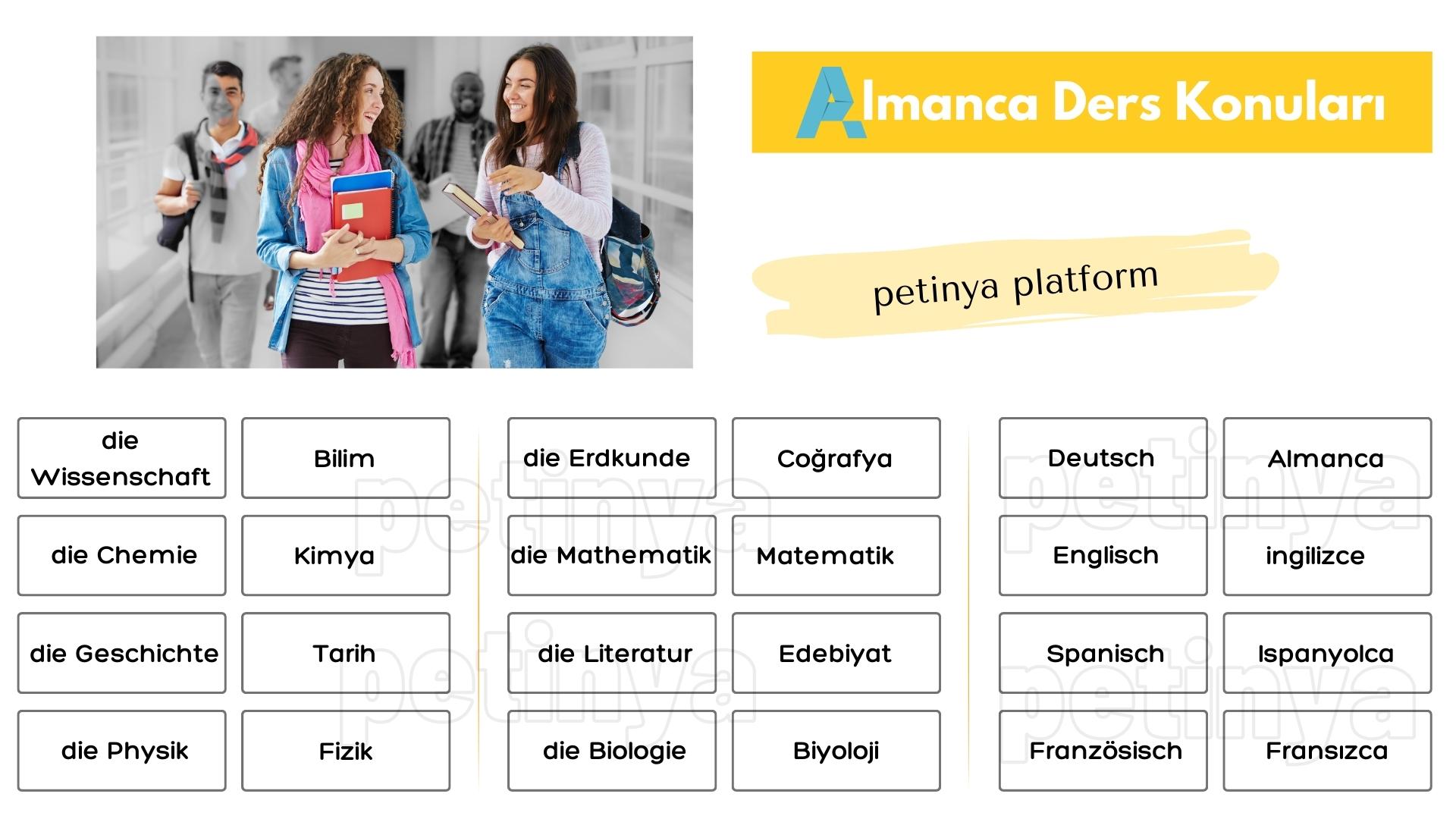German Idioms: Unlocking The Magic Of Almanca Deyimler
So here we are, diving headfirst into the fascinating world of German idioms or as they say in Turkey, "almanca deyimler." Now, if you're anything like me, you might have stumbled upon these quirky expressions while trying to wrap your head around the German language. And let me tell you, it's like discovering a hidden treasure chest filled with linguistic gold. These little gems not only spice up your conversations but also give you a deeper understanding of German culture and mindset. So, buckle up, because we're about to embark on an exciting journey through the realm of almanca deyimler.
But why should you care about these idioms, you ask? Well, think of it this way: learning almanca deyimler is like getting a backstage pass to the cultural nuances of the German-speaking world. It's not just about memorizing vocabulary; it's about connecting with people on a more personal level. When you sprinkle these idioms into your conversations, you're showing that you're not just a language learner but someone who truly appreciates the beauty of the language. And who doesn't want to impress their German-speaking friends with a well-placed idiom, right?
Before we dive deeper, let's set the stage. In this article, we'll explore everything you need to know about almanca deyimler. We'll break it down into bite-sized chunks, making sure you leave here armed with knowledge and ready to conquer the world of German idioms. So, without further ado, let's get to it!
- Hugo Bork Platz A Deep Dive Into The Life Legacy And Impact
- Hella Jongerius The Queen Of Contemporary Design Redefining Modern Aesthetics
What Are German Idioms Anyway?
Let's start with the basics: what exactly are these almanca deyimler we keep talking about? Simply put, they're phrases or expressions that don't translate literally but carry a specific meaning within the German-speaking community. Think of them as the secret handshake of the language world. For example, the idiom "Ich verstehe nur Bahnhof" literally translates to "I only understand train station," but what it really means is "I don't understand a thing." See what I mean? These expressions add a layer of depth and humor to the language that you just can't get from a textbook.
Why Learn Almanca Deyimler?
Now, you might be wondering, why bother learning these expressions when you can get by with basic vocabulary? Well, my friend, that's like saying you can survive on bread and water. Sure, it'll keep you alive, but where's the flavor? Learning almanca deyimler enriches your language skills and makes your conversations more engaging. Plus, it's a great way to show off your cultural awareness and make a lasting impression on native speakers.
Top 10 Must-Know Almanca Deyimler
Let's get down to business and introduce you to some of the most commonly used German idioms. These are the ones you'll want to have in your back pocket for those moments when you need to impress:
- Brand Werdau Heute The Rise Of A Modern Icon In Todays Market
- Tapella Rheinbach A Hidden Gem In The Heart Of Germany
- "Alles hat ein Ende, nur die Wurst hat zwei" – Everything has an end, only the sausage has two.
- "Da hat jemand einen Vogel gesehen" – Someone saw a bird there (meaning someone is acting strange).
- "Das ist mir Wurst" – That's sausage to me (meaning I don't care).
- "Den Teufel werde ich tun" – The devil I'll do (meaning I won't do it).
- "Das ist nicht dein Bier" – That's not your beer (meaning it's none of your business).
- "Ich verstehe nur Bahnhof" – I only understand train station (meaning I don't understand anything).
- "Jemanden den Kopf waschen" – To wash someone's head (meaning to scold someone).
- "Die Katze im Sack kaufen" – To buy a cat in a sack (meaning to buy something without checking it first).
- "Jemandem ein Schnitzel auf die Stirn binden" – To tie a schnitzel to someone's forehead (meaning to make someone look foolish).
- "Alles hat ein Ende, nur die Wurst hat zwei" – Everything has an end, only the sausage has two.
Breaking Down the Meanings
Each of these almanca deyimler carries its own unique flavor and context. For instance, "Da hat jemand einen Vogel gesehen" might sound bizarre at first, but once you understand that it refers to someone acting odd or eccentric, it starts to make perfect sense. Similarly, "Ich verstehe nur Bahnhof" is a playful way of admitting confusion, much like saying "it's all Greek to me" in English.
How to Use Almanca Deyimler in Conversations
Now that you know some of the most popular German idioms, it's time to learn how to use them effectively. The key is to sprinkle them into your conversations naturally, without forcing them. Start by using the simpler ones and gradually work your way up to the more complex expressions. And remember, context is everything. You don't want to drop an idiom in the middle of a serious conversation unless it fits perfectly.
Tips for Incorporating Idioms Seamlessly
Here are a few tips to help you integrate almanca deyimler into your daily conversations:
- Listen to native speakers and pay attention to how they use idioms.
- Practice using idioms in role-playing scenarios with a language partner.
- Write down new idioms you come across and try to use them in your own sentences.
- Don't be afraid to make mistakes; it's all part of the learning process.
The Cultural Significance of Almanca Deyimler
German idioms are more than just clever wordplay; they're a reflection of the country's culture and history. Many of these expressions have roots in folklore, mythology, or historical events. For example, "Die Katze im Sack kaufen" dates back to the days when merchants would try to trick customers by selling them inferior goods. Understanding the origins of these idioms gives you a deeper appreciation for the language and the people who speak it.
Exploring the Origins
Take the idiom "Alles hat ein Ende, nur die Wurst hat zwei" for instance. This playful saying not only highlights the German love for sausages but also reflects the country's sense of humor and wit. Similarly, "Jemandem ein Schnitzel auf die Stirn binden" is a humorous way of describing someone who's been made to look foolish, much like tying a piece of meat to their forehead. These idioms are a testament to the creativity and ingenuity of the German language.
Common Mistakes to Avoid When Using Almanca Deyimler
While learning German idioms can be a lot of fun, it's important to be aware of some common pitfalls. One of the biggest mistakes is using idioms out of context or with the wrong tone. For example, "Das ist nicht dein Bier" might come across as rude if used in the wrong situation. Another mistake is trying to translate idioms literally, which can lead to some pretty awkward moments. Always make sure you understand the meaning and appropriate usage before using an idiom in conversation.
How to Avoid Embarrassing Moments
To help you steer clear of embarrassing situations, here are a few tips:
- Do your research and learn the correct context for each idiom.
- Practice using idioms in low-stakes situations before trying them in more formal settings.
- Ask native speakers for feedback and clarification if you're unsure about an idiom's usage.
Resources for Learning Almanca Deyimler
Now that you're ready to dive deeper into the world of German idioms, here are some resources to help you along the way:
- Online Dictionaries: Websites like dict.cc and Linguee offer extensive collections of idioms with translations and examples.
- Language Apps: Apps like Duolingo and Babbel often include idiomatic expressions in their lessons.
- YouTube Channels: Channels like Easy German and GermanPod101 provide engaging content focused on idioms and conversational German.
- Books: Books like "Idiomatic German: A Practical Guide to Everyday Language" offer in-depth explanations and examples.
Why These Resources Rock
These resources are invaluable because they provide a variety of learning methods to suit different preferences. Whether you're a visual learner, an auditory learner, or someone who prefers hands-on practice, there's something for everyone. Plus, many of these resources are updated regularly, ensuring you have access to the latest and most relevant information.
Practical Exercises to Master Almanca Deyimler
Practice makes perfect, and mastering German idioms is no exception. Here are some practical exercises to help you hone your skills:
- Idiom of the Day: Choose a new idiom each day and try to use it in at least three different sentences.
- Role-Playing: Practice conversations with a language partner, incorporating idioms naturally into the dialogue.
- Idiom Journal: Keep a journal where you write down new idioms and examples of how they're used.
- Flashcards: Create flashcards with idioms on one side and their meanings on the other, and review them regularly.
Tracking Your Progress
Keeping track of your progress is essential for staying motivated. Set small, achievable goals, such as learning five new idioms each week, and reward yourself when you reach them. Over time, you'll notice a significant improvement in your ability to use almanca deyimler with confidence.
Conclusion: Embrace the Magic of Almanca Deyimler
And there you have it, folks! A comprehensive guide to the wonderful world of German idioms. By now, you should have a solid understanding of what almanca deyimler are, why they're important, and how to use them effectively in conversations. Remember, learning idioms is a journey, not a destination. So, keep exploring, keep practicing, and most importantly, have fun!
Before you go, I want to leave you with one final thought: idioms are the spice of language. They add flavor, personality, and depth to your conversations, making them more memorable and enjoyable. So, don't be afraid to experiment and make mistakes. The more you immerse yourself in the world of almanca deyimler, the more confident you'll become.
Now it's your turn! Share your favorite German idiom in the comments below, or let us know which one you're most excited to learn. And if you found this article helpful, don't forget to share it with your friends and fellow language enthusiasts. Together, let's spread the magic of almanca deyimler!
Table of Contents
- What Are German Idioms Anyway?
- Why Learn Almanca Deyimler?
- Top 10 Must-Know Almanca Deyimler
- How to Use Almanca Deyimler in Conversations
- The Cultural Significance of Almanca Deyimler
- Common Mistakes to Avoid When Using Almanca Deyimler
- Resources for Learning Almanca Deyimler
- Practical Exercises to Master Almanca Deyimler
- Conclusion: Embrace the Magic of Almanca Deyimler



Detail Author:
- Name : Prof. Carley Beier I
- Username : russ03
- Email : senger.golden@gmail.com
- Birthdate : 1998-10-29
- Address : 47019 Branson Path Brennanborough, NM 71861-4321
- Phone : 1-631-571-1488
- Company : Zboncak LLC
- Job : Marine Engineer
- Bio : Velit qui excepturi aliquid esse architecto. Dolore delectus dolores dolores voluptatem. Ab autem sint doloribus adipisci aut incidunt. Eligendi ad provident aut officiis nam cupiditate.
Socials
tiktok:
- url : https://tiktok.com/@zelma_real
- username : zelma_real
- bio : Dolorem quasi nesciunt quis sapiente tempora. Sit qui esse et quaerat incidunt.
- followers : 5244
- following : 2867
linkedin:
- url : https://linkedin.com/in/zelma.shields
- username : zelma.shields
- bio : Sint facere ea natus in fugiat dolor mollitia.
- followers : 380
- following : 888